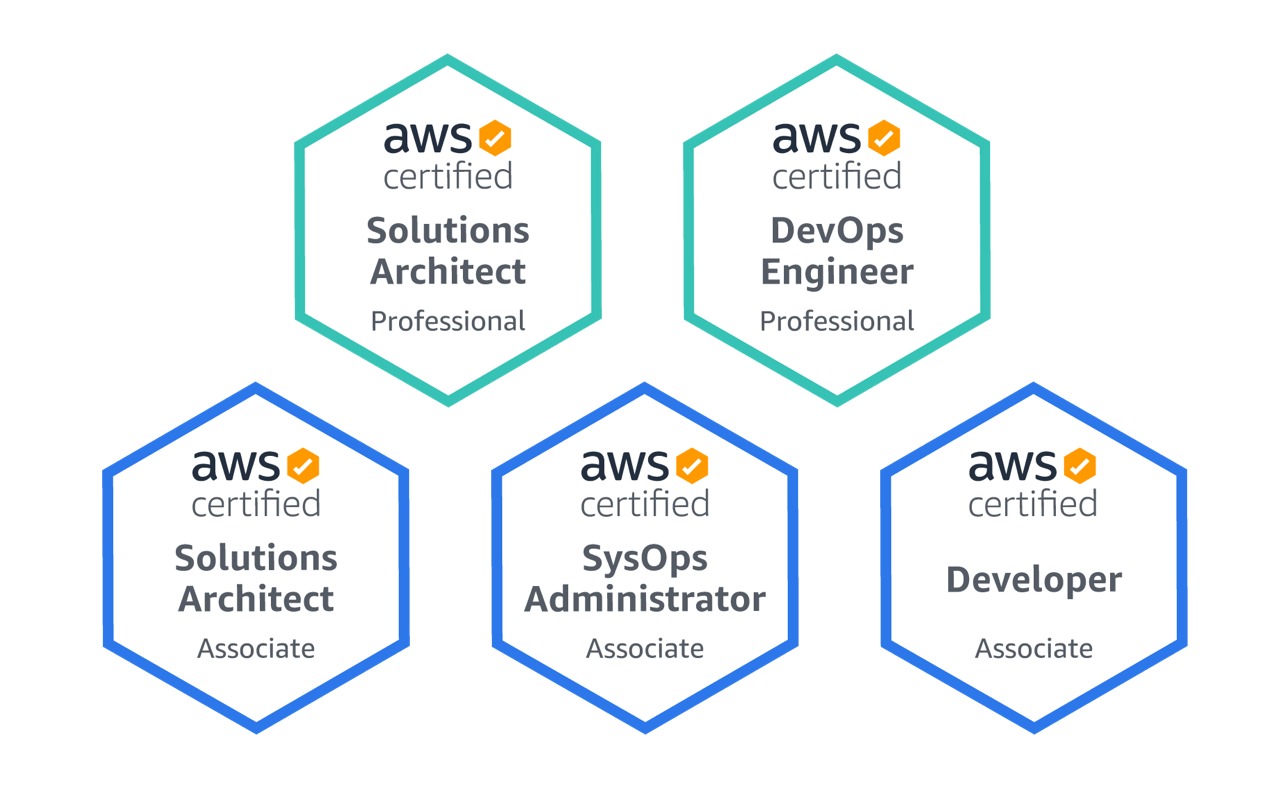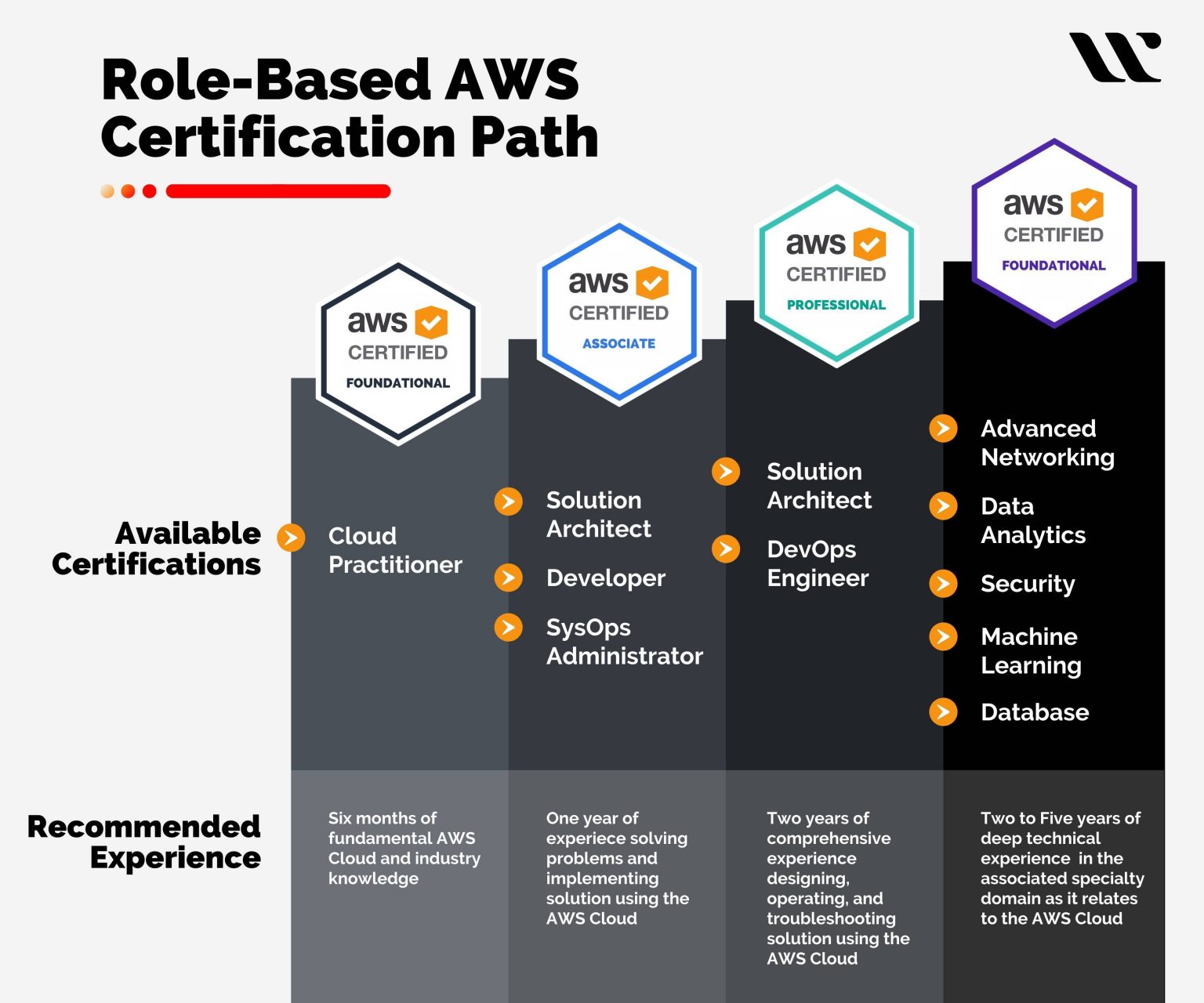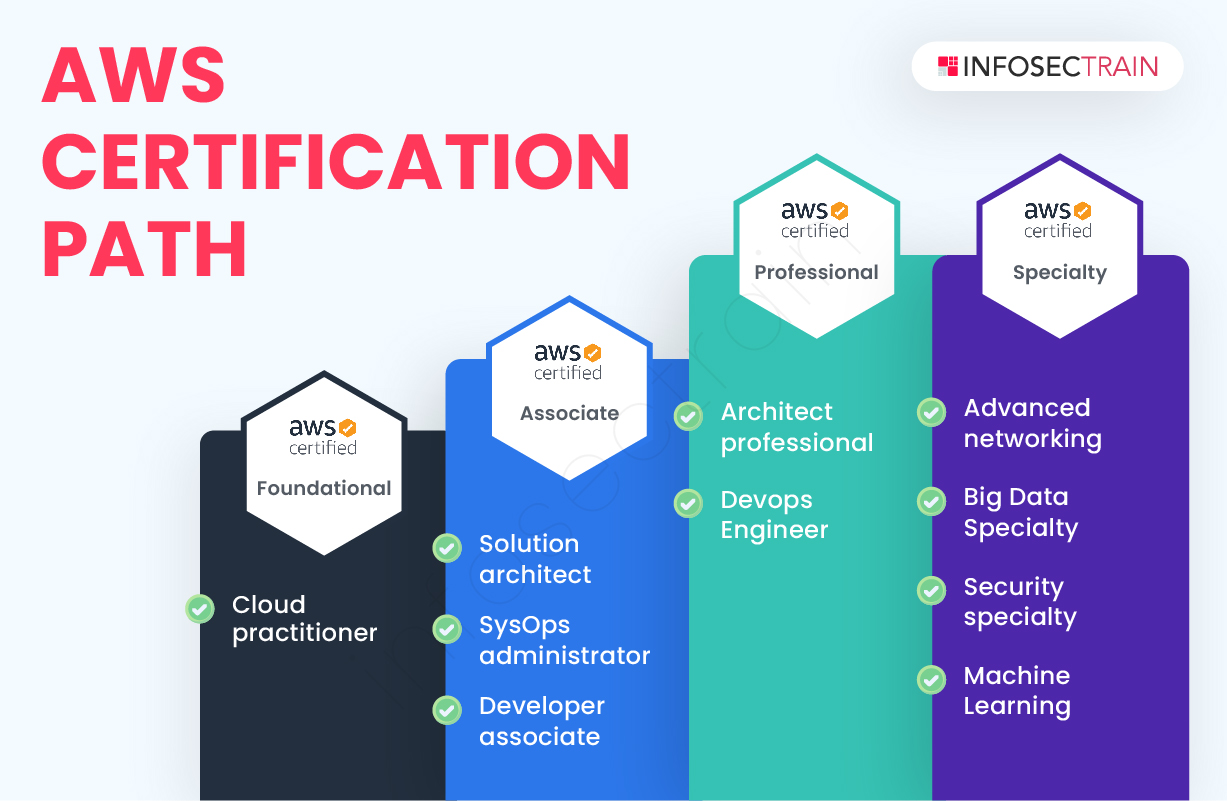Understanding AWS Cloud Foundation Certification
The AWS Cloud Foundation Certification, also known as the AWS Certified Cloud Practitioner, is a valuable credential that validates an individual’s understanding of cloud computing and AWS services. This certification is ideal for those who are new to the cloud industry or looking to gain foundational knowledge of AWS. In today’s digital landscape, cloud computing has become increasingly important, with AWS being one of the leading cloud service providers.
AWS Cloud Foundation Certification: A Comprehensive Guide to Success
Understanding AWS Cloud Foundation Certification
The AWS Cloud Foundation Certification, also known as the AWS Certified Cloud Practitioner, is a valuable credential that validates an individual’s understanding of cloud computing and AWS services. This certification is ideal for those who are new to the cloud industry or looking to gain foundational knowledge of AWS. In today’s digital landscape, cloud computing has become increasingly important, with AWS being one of the leading cloud service providers.
Why Pursue AWS Cloud Foundation Certification?
Obtaining the AWS Cloud Foundation Certification can bring numerous benefits, including career advancement opportunities, enhanced credibility, and staying updated with the latest AWS services. This certification serves as a solid foundation for those interested in cloud computing, demonstrating a strong understanding of AWS services and best practices. As more businesses adopt cloud technologies, professionals with cloud expertise are increasingly in demand, making the AWS Cloud Foundation Certification a valuable asset for career growth.
Prerequisites and Eligibility for AWS Cloud Foundation Certification
Candidates for the AWS Cloud Foundation Certification should possess a solid understanding of cloud computing and Amazon Web Services (AWS). While there are no strict prerequisites, AWS recommends specific knowledge and experience to ensure success in the certification exam.
Relevant Experience
Although not mandatory, having at least six months of hands-on experience with AWS services is beneficial. This experience may include deploying, managing, and operating applications on the AWS platform. Ideal candidates have worked with various AWS services, such as Amazon EC2, Amazon S3, Amazon RDS, and AWS Lambda.
Required Knowledge
Candidates should have a general familiarity with cloud computing concepts, AWS architectural principles, and the AWS global infrastructure. Familiarity with network technologies, security concepts, and storage is also essential. AWS provides a detailed list of exam topics, allowing candidates to focus their study efforts on relevant areas.
Recommended Training and Courses
Although not required, AWS offers several training courses and resources to help candidates prepare for the certification exam. These resources include the AWS Cloud Practitioner Essentials course, which covers AWS basics and best practices. AWS also provides digital training, whitepapers, and documentation to help candidates deepen their understanding of AWS services and concepts.
In summary, the AWS Cloud Foundation Certification does not have strict prerequisites, but candidates should have relevant experience, required knowledge, and may consider recommended training or courses. By meeting these guidelines, candidates can increase their chances of success in the certification exam and demonstrate their proficiency in AWS cloud computing.
How to Prepare for AWS Cloud Foundation Certification
Preparing for the AWS Cloud Foundation Certification exam requires a strategic approach and a solid understanding of AWS services and best practices. Follow this step-by-step guide to maximize your chances of success.
Step 1: Familiarize Yourself with AWS
Begin by gaining a solid understanding of AWS services, features, and benefits. Explore the AWS Free Tier, which allows you to access and experiment with various AWS services at no cost. Hands-on experience is crucial for understanding AWS concepts and their practical applications.
Step 2: Review the Exam Guide
AWS provides an official exam guide for the Cloud Foundation Certification. This guide outlines the exam’s structure, format, and key topics. Reviewing the exam guide will help you understand what to expect and focus your study efforts on relevant areas.
Step 3: Utilize Recommended Study Materials
AWS offers several study materials, including whitepapers, documentation, and digital training courses. Utilize these resources to deepen your understanding of AWS services and best practices. Some popular study materials include the AWS Cloud Practitioner Essentials course and the AWS Whitepapers Library.
Step 4: Take Practice Exams
Practice exams are an excellent way to gauge your readiness for the certification exam. AWS provides sample questions and practice exams to help you assess your knowledge and identify areas for improvement. Regular practice exams can also help you become familiar with the exam format and improve your time management skills.
Step 5: Join Study Groups and Online Communities
Connecting with other AWS professionals and learners can provide valuable insights and support throughout your certification journey. Join AWS user groups, online forums, or social media communities to engage in discussions, ask questions, and share resources with like-minded individuals.
Step 6: Schedule and Prepare for the Exam
Once you feel confident in your understanding of AWS services and best practices, schedule the certification exam through the AWS Certification website. Set a realistic exam date, allowing enough time to review and practice. Develop a study plan and stick to it, focusing on areas where you need improvement.
Tips for Success
- Focus on AWS architecture, security, and best practices.
- Understand the AWS global infrastructure and its components.
- Learn about AWS pricing models and billing systems.
- Practice using the AWS Management Console and AWS CLI.
- Stay up-to-date with the latest AWS announcements and updates.
By following this step-by-step guide and incorporating these tips, you can effectively prepare for the AWS Cloud Foundation Certification exam and demonstrate your proficiency in AWS cloud computing.
Exam Structure and Key Topics Covered in AWS Cloud Foundation Certification
The AWS Cloud Foundation Certification exam, also known as the AWS Certified Cloud Practitioner exam, evaluates a candidate’s understanding of AWS services, architecture, security, and best practices. Familiarizing yourself with the exam structure and key topics is essential for effective preparation.
Exam Structure
The AWS Certified Cloud Practitioner exam (CLF-C01) consists of 65 multiple-choice and multiple-response questions. Candidates have 90 minutes to complete the exam, which is available in English, Japanese, Korean, and Simplified Chinese. The passing score is 700 out of 1000.
Key Topics Covered
The AWS Cloud Foundation Certification exam covers several key topics, including:
- Cloud Concepts: Understanding cloud computing concepts, benefits, and best practices. Candidates should be familiar with cloud economics, migration strategies, and the AWS global infrastructure.
- Security and Compliance: Understanding AWS security services, policies, and controls. Candidates should be able to explain AWS shared responsibility model, data encryption, and compliance programs.
- Technology: Familiarity with AWS services and their use cases. Candidates should be able to identify the appropriate AWS service for a specific scenario, such as compute, storage, database, and networking services.
- Billings and Pricing: Understanding AWS pricing models, billing systems, and cost optimization strategies. Candidates should be able to analyze and interpret AWS bills and make recommendations for cost optimization.
By focusing on these key topics and understanding the exam structure, candidates can effectively prepare for the AWS Cloud Foundation Certification exam and demonstrate their proficiency in AWS cloud computing.
Real-World Experience: Applying AWS Cloud Foundation Certification Skills
The AWS Cloud Foundation Certification equips professionals with the skills and knowledge necessary to work effectively in cloud computing environments. By applying these skills in real-world scenarios, certification holders can enhance their value and contribute to their organizations’ success.
Architecting Scalable Solutions
AWS Cloud Foundation Certification holders can design and implement scalable, secure, and high-performance solutions using AWS services. For example, they can create a highly available web application using Amazon EC2, Amazon S3, and Amazon RDS. By understanding AWS architecture and best practices, they can optimize resource utilization, reduce costs, and improve application performance.
Migrating On-Premises Workloads to AWS
AWS Cloud Foundation Certification skills are valuable when migrating on-premises workloads to AWS. Certification holders can assess migration readiness, choose appropriate migration strategies, and execute migrations using AWS migration tools. They can also optimize and manage the migrated workloads on AWS, ensuring seamless integration and operation.
Managing Security and Compliance
Security and compliance are critical aspects of cloud computing. AWS Cloud Foundation Certification holders can implement and manage security policies, controls, and services to protect sensitive data and applications. They can also ensure compliance with various industry standards and regulations, such as HIPAA, PCI DSS, and GDPR.
Optimizing Costs and Performance
AWS Cloud Foundation Certification skills can help organizations optimize costs and performance by leveraging AWS pricing models, billing systems, and cost optimization strategies. Certification holders can analyze and interpret AWS bills, identify cost-saving opportunities, and implement best practices to reduce costs and improve performance.
Collaborating with Cloud Professionals
The AWS Cloud Foundation Certification serves as a foundation for further AWS certifications and specializations. By collaborating with other AWS-certified professionals, certification holders can contribute to the design, deployment, and management of complex AWS environments. They can also share their knowledge and experience, fostering a culture of continuous learning and improvement.
In conclusion, the AWS Cloud Foundation Certification provides professionals with valuable skills that can be applied in various real-world scenarios. By leveraging these skills, certification holders can contribute to their organizations’ success and advance their careers in cloud computing.
Maintaining and Renewing AWS Cloud Foundation Certification
The AWS Cloud Foundation Certification is valid for three years from the date of certification. AWS encourages certification holders to maintain their skills and knowledge by providing options for recertification and continuing education. Here’s an overview of the process for maintaining and renewing your AWS Cloud Foundation Certification.
Recertification Exam
To recertify your AWS Cloud Foundation Certification, you can take the current version of the certification exam. This option is available to certification holders within six months of their certification’s expiration date. By passing the recertification exam, you will extend your certification for another three years.
Continuing Education
AWS offers various opportunities for continuing education, allowing certification holders to stay up-to-date with the latest AWS services and best practices. These opportunities include:
- AWS Learning Credits: AWS Learning Credits can be used to purchase AWS training courses, labs, and exams. By completing these courses, you can earn badges and certificates that demonstrate your expertise in specific AWS services or solutions.
- AWS re:Invent: AWS re:Invent is an annual conference that offers hundreds of breakout sessions, workshops, and bootcamps. Attending re:Invent can help you learn about the latest AWS services, features, and best practices.
- AWS Community Events: AWS Community Events, such as AWS Summits, Meetups, and User Groups, provide opportunities for networking, learning, and collaboration with other AWS professionals.
Recertification Exam vs. Continuing Education
Both recertification exams and continuing education are valid options for maintaining your AWS Cloud Foundation Certification. The choice depends on your personal preferences, learning style, and availability. If you prefer a structured exam format and have the time to prepare, the recertification exam might be the best option. However, if you enjoy learning through various channels, such as training courses, workshops, and community events, continuing education might be more suitable for you.
By maintaining and renewing your AWS Cloud Foundation Certification, you demonstrate your commitment to staying current with AWS services and best practices. This commitment can lead to career advancement, increased credibility, and improved performance in your organization.
Comparing AWS Cloud Foundation Certification to Other AWS Certifications
AWS offers various certifications that cater to different roles, skill levels, and career goals. Understanding the differences between these certifications can help professionals choose the right certification for their needs. Here’s a comparison of the AWS Cloud Foundation Certification to other AWS certifications.
AWS Cloud Foundation Certification vs. AWS Certified Solutions Architect – Associate
The AWS Cloud Foundation Certification is an entry-level certification that validates foundational knowledge of AWS services and best practices. In contrast, the AWS Certified Solutions Architect – Associate certification is designed for professionals with experience designing and deploying scalable systems on AWS. While the Cloud Foundation Certification covers basic AWS concepts, the Solutions Architect – Associate certification focuses on designing and implementing AWS solutions using architectural best practices.
AWS Cloud Foundation Certification vs. AWS Certified Developer – Associate
The AWS Cloud Foundation Certification is a prerequisite for the AWS Certified Developer – Associate certification. The Developer – Associate certification is designed for professionals with experience developing and maintaining applications on AWS. While the Cloud Foundation Certification covers basic AWS concepts, the Developer – Associate certification focuses on developing, deploying, and debugging cloud-based applications using AWS services.
AWS Cloud Foundation Certification vs. AWS Certified SysOps Administrator – Associate
The AWS Cloud Foundation Certification is a prerequisite for the AWS Certified SysOps Administrator – Associate certification. The SysOps Administrator – Associate certification is designed for professionals with experience deploying, managing, and operating scalable systems on AWS. While the Cloud Foundation Certification covers basic AWS concepts, the SysOps Administrator – Associate certification focuses on deployment, management, and operations of AWS services and resources.
AWS Cloud Foundation Certification vs. AWS Certified DevOps Engineer – Professional
The AWS Cloud Foundation Certification is a prerequisite for the AWS Certified DevOps Engineer – Professional certification. The DevOps Engineer – Professional certification is designed for professionals with experience implementing and managing DevOps practices using AWS services. While the Cloud Foundation Certification covers basic AWS concepts, the DevOps Engineer – Professional certification focuses on the implementation and management of DevOps practices using AWS services and tools.
In conclusion, the AWS Cloud Foundation Certification is an entry-level certification that serves as a foundation for other AWS certifications. By obtaining the Cloud Foundation Certification, professionals can demonstrate their foundational knowledge of AWS services and best practices, and prepare themselves for more advanced AWS certifications.






